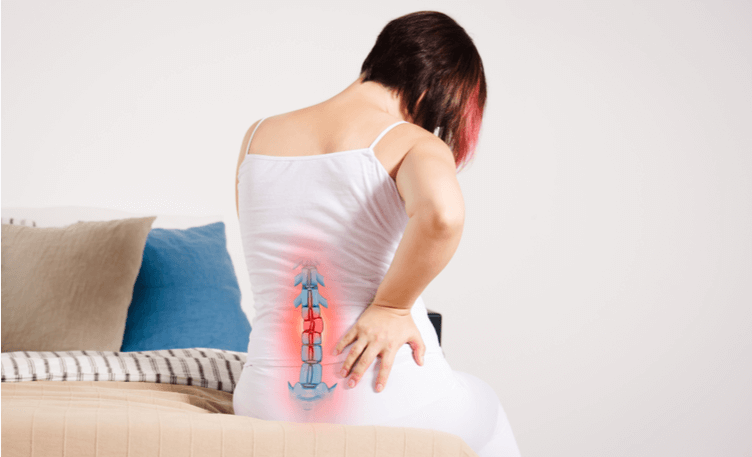Why Does My Back Hurt?
Common Causes of Chronic Back Pain
There are many reasons why you could be experiencing pain in your back. Causes of back pain vary depending on severity. Some common causes of chronic back pain include:
Other causes included a strain on your lumbar from sports or preexisting conditions, tight ham strings, kidney infections, over or under use of back muscles, or simply standing and sleeping in a less than ideal position. Whatever the case makes sure to consult a doctor before treating your pain.

Symptoms of Chronic Back Pain
There are several symptoms to look for when you experience chronic back pain that may indicate you have a larger problem than a strained muscle.
Common symptoms include:
- Persistent aching or stiffness along your spine
- Sharp pain in the neck, upper and lower back when engaged in normal activity
- Chronic aching in the lower back when sitting or standing for long periods of time
- Back pain or burning that extends down the backs of your legs
- Incessant muscle spasms in your lower back
- Pain in your back during the night
Solutions for Eliminating Chronic Back Pain
Many doctors will recommend surgery for a back pain condition, but it is important to know all your options. Our institute specializes in a completely natural, drug-free, nonsurgical solution to chronic back pain called Functional Disc Stabilization™ and physical therapy. Learn more about our treatment here.






